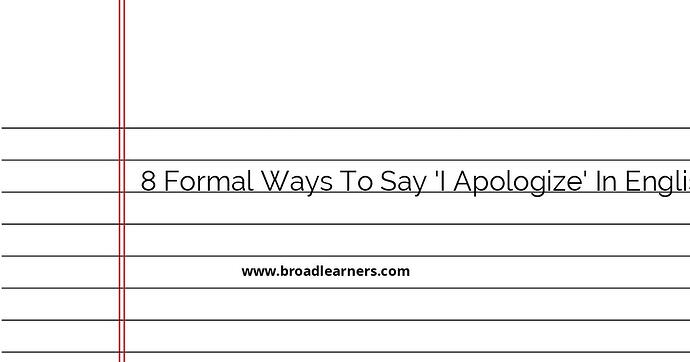Apologizing is an essential part of effective communication. When you make a mistake or unintentionally hurt someone, saying 'I apologize' shows humility and demonstrates your willingness to take responsibility for your actions. However, there are several formal ways to convey the same sentiment without using the exact phrase 'I apologize.' Here are eight alternatives:
- I regret my actions
- Please accept my sincerest apologies
- I would like to express my deepest regret
- Regrettably, I made an error
- Allow me to make amends
- I acknowledge my mistake
- Please forgive my oversight
- I take full responsibility for my actions
Each of these phrases conveys sincerity and remorse in a formal context. Let's explore each alternative with examples to provide a better understanding:
1. I Regret My Actions
'I regret my actions' is a formal way to convey remorse for a mistake or misstep.
This phrase is suitable for situations where you want to acknowledge your error and show that you are genuinely sorry. It expresses a sense of personal accountability and a desire to rectify the situation.
Example:
Dear [Recipient],
I regret my actions and the impact they had on our project. Please know that I am committed to addressing the issue and ensuring it does not happen again.
Sincerely, [Your Name]
2. Please Accept My Sincerest Apologies
...
3. I Would Like to Express My Deepest Regret
...
4. Regrettably, I Made an Error
...
5. Allow Me to Make Amends
...
6. I Acknowledge My Mistake
...
7. Please Forgive My Oversight
...
8. I Take Full Responsibility for My Actions
...
Did I miss anything? Respond below
